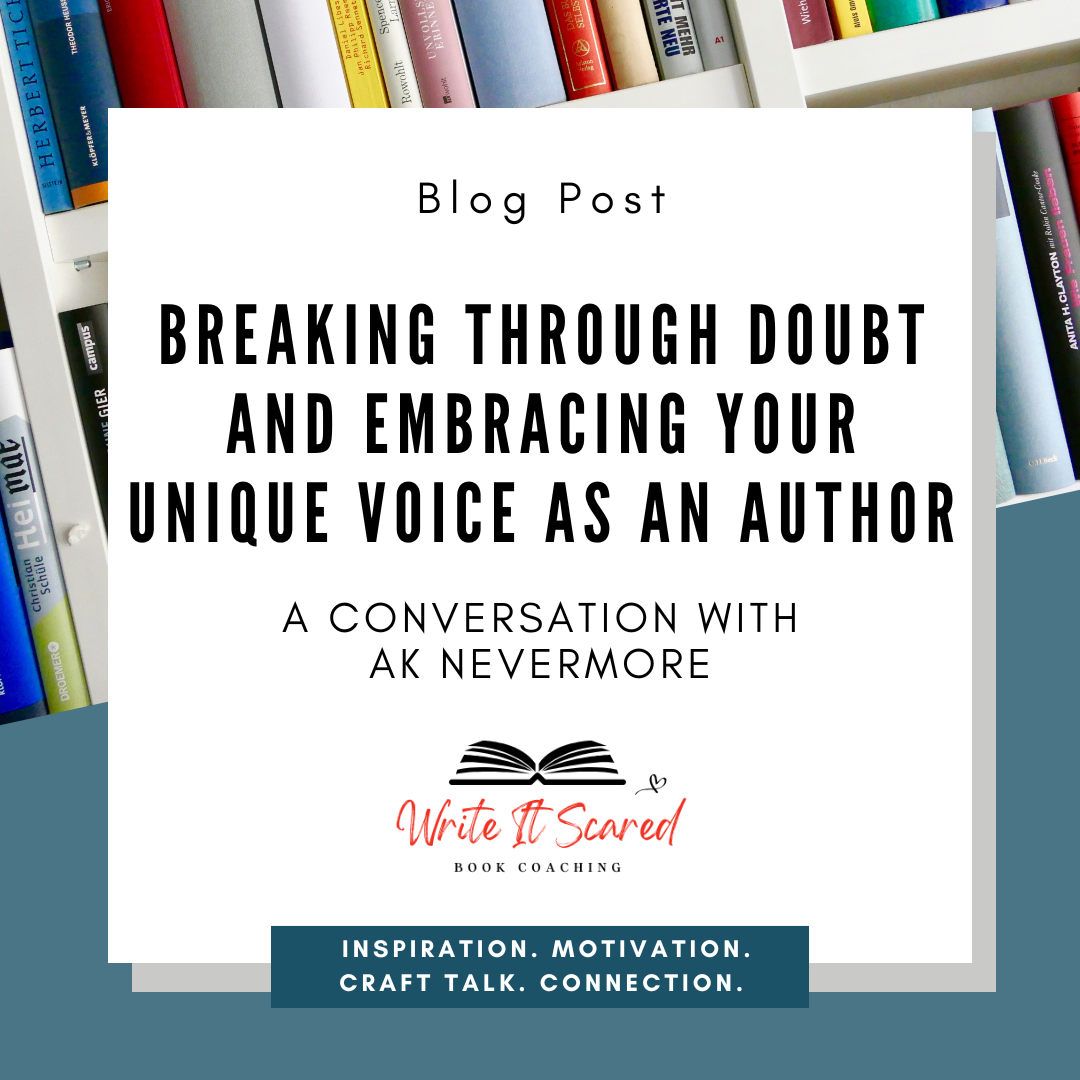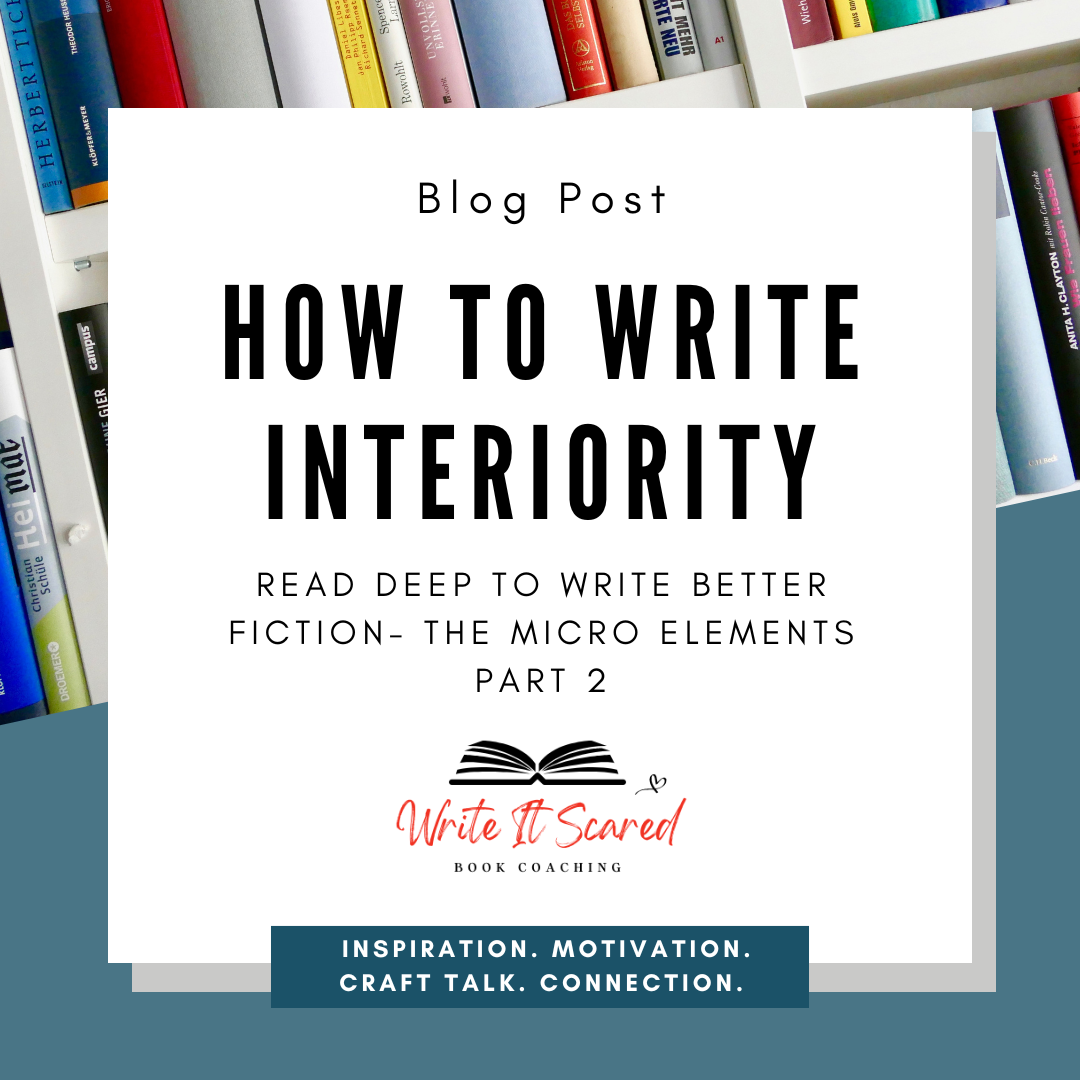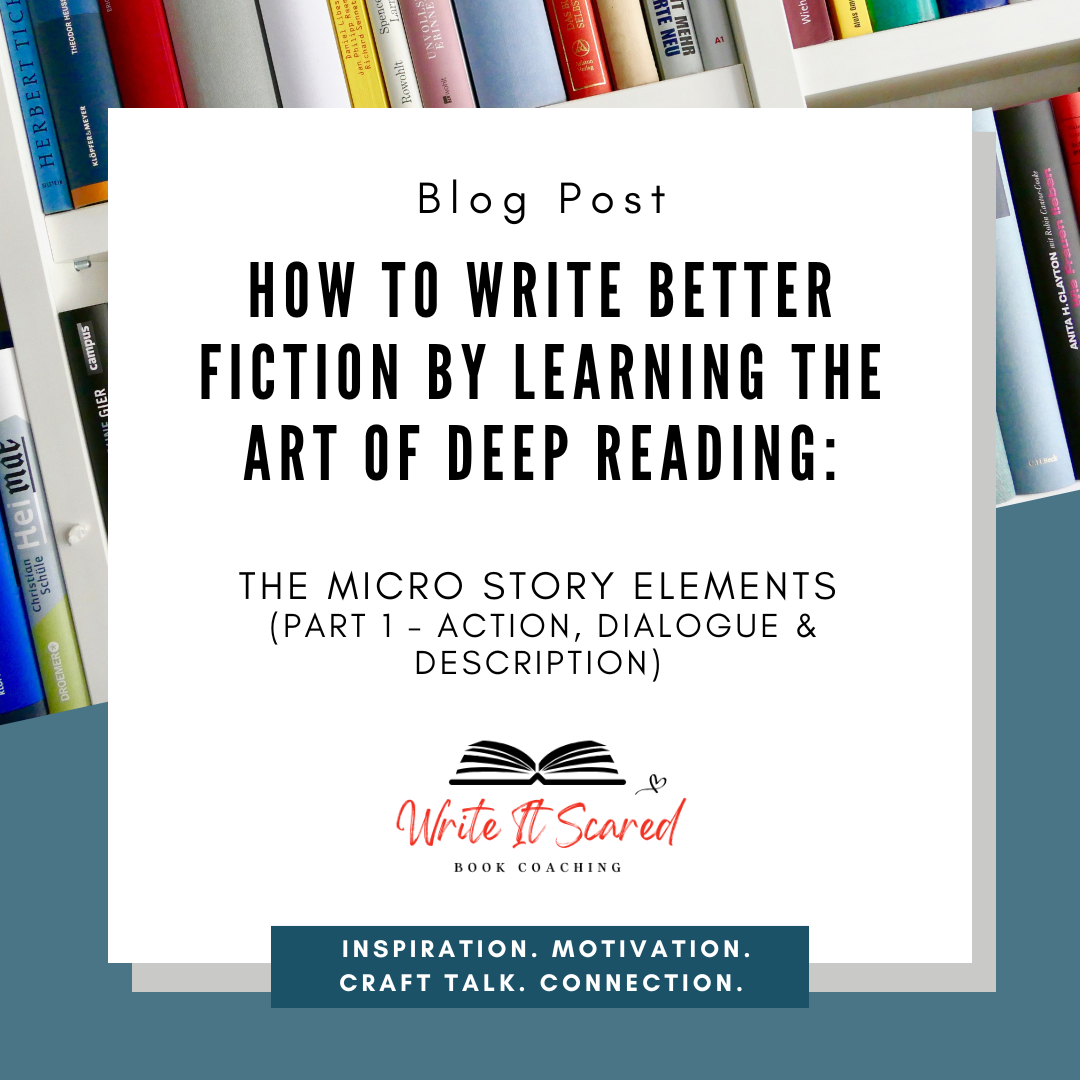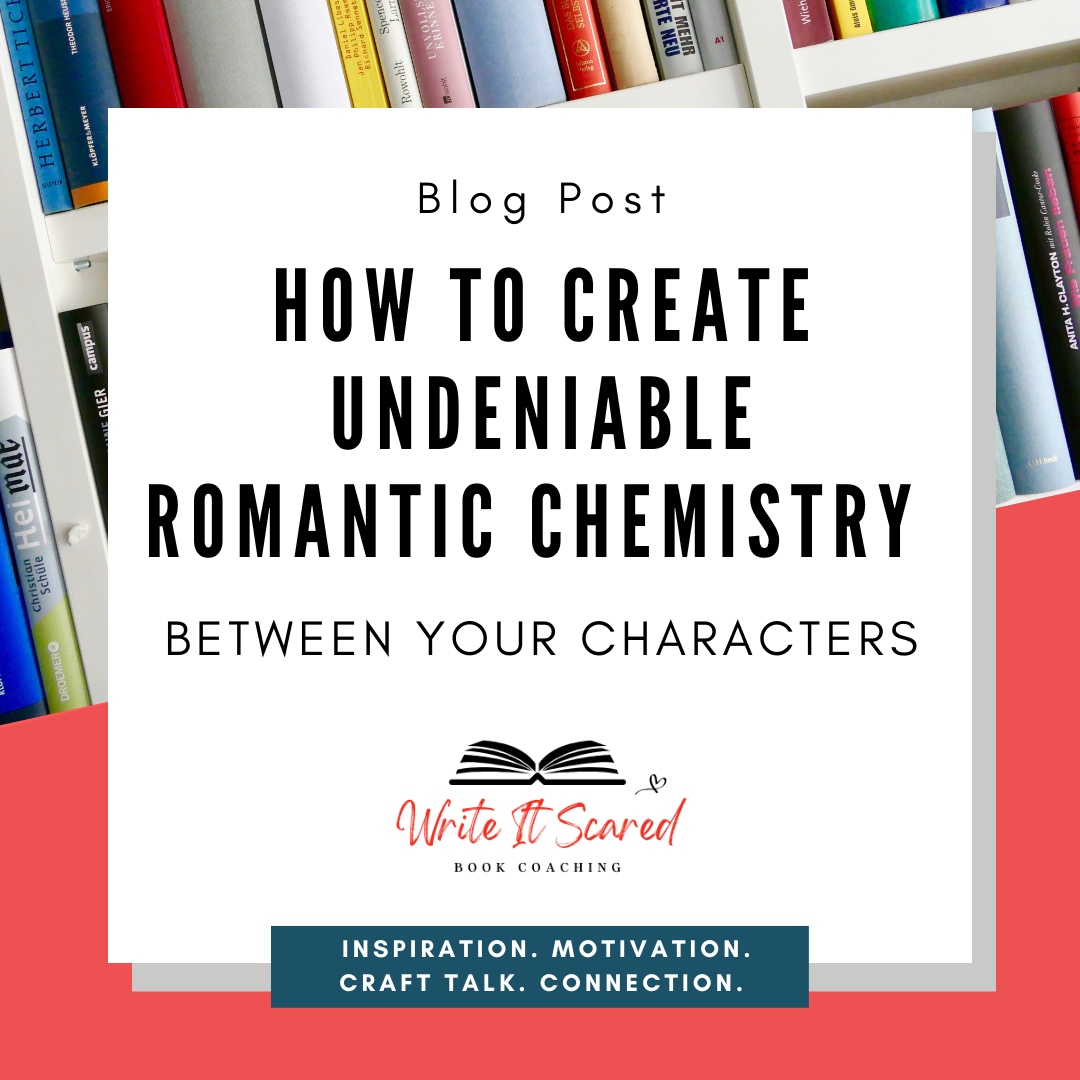
How to Write a Seamless Flashback In Your Fiction Novel
Flashbacks are a mainstay of commercial fiction, especially in the suspense and romance genres. When done poorly and placed improperly, yes, they are painful to read. But here’s the secret…when you learn to write a flashback well they become a fluid part of the narrative. You don’t even notice them—and really, that’s the goal.

The Art of Crafting Remarkable Middle-Grade Fiction with Janet Fox
Do you have an idea for a middle-grade novel, or know a writer that does?
Wonder where you should start, how long the story should be, or what the middle-grade audience is actually interested in?
If you said yes to any of those join me as I dive deep into the intricacies of writing for middle-grade fiction with author and book coach Janet Fox in this week’s podcast.

How to Convey Backstory Without Bogging Down Your Novel
Conveying backstory is only necessary if it helps the reader understand the present moment and move the story forward. If the backstory is irrelevant to the character’s present situation or circumstances, it does not need to be there.

Limited Time Summer Offer Summer 2024: Mini Developmental Edits for Fiction Writers
I'm opening up my schedule to do a handful of mini-developmental edits this summer. Only four slots are open, so it's first come-first served.
A developmental edit focuses on the story's structure and big-picture items: theme, genre conventions, stakes, plot logic, worldbuilding, narrative drive, character arcs, characterization, point of view, and voice, as well as more craft-focused issues that require attention–but it is not a copy or line edit.

It’s Never Too Late to Start Writing Your Novel: Tips on Mindset and Story Development From Two Certified Book Coaches
Do you ever feel like it’s too late?
Think that maybe you missed the boat heading toward your writing dreams?
Maybe you should have started in your teens, twenties, thirties, fifties, or some other decade before where you are now.
If you said yes to any of that, then episode twelve of the Write It Scared Podcast is where I will prove you wrong. Well, me and my guest, award-winning YA Fantasy Author and Certified Book Coach, Cassie Newell.

How To Craft a Compelling Backstory for Your Novel and Keep Track of It!
If you consider a story to be one large event that creates an irreversible change, then it must have a beginning to have an end. It must start from somewhere and be in a particular state to experience said change, and there must be a reason for that initial state of being.
That reason, my friend, is the backstory.
Crafting a compelling backstory is essential to creating realistic characters with motivations and complex problems the reader will relate to.

Why Never Giving Up on Your Writing Dreams Matters
Author Joshua Moehling, shares his journey from his early childhood dreams of being Stephen King, to facing reality and rejection from the publishing world, to eventually succeeding in accomplishing his dream of becoming a published author.

Peeling Back the Layers on Author, Narrator, and Character Voice to Write Better Fiction - The Micro Elements Part 4
Voice is one of the more ambiguous literary terms. When I started writing fiction, I had no clue what people meant when they referred to “voice.” Whose voice? The author’s, the characters’, or an unknown narrator?
It turns out we’re talking about all three, all at once, but here’s where it gets really confusing—everything stems from the author’s voice.

Breaking Through Doubt and Embracing Your Unique Voice as an Author
How do you come back from the dead?
Recover from being told who you are and what you write is wrong?
From bending yourself around like a pretzel trying to fit someone else's writing mold only to figure out that it’s pointless because it sucked the joy and life out of what you stand for?
If you write dark, spicy romance in the wheelhouses of sci-fi or fantasy, or if you struggle to express your voice in writing, you don’t want to miss this conversation.

Advice for Mystery, Thriller, and Suspense Writers & How to Craft a Credible Villain
We discuss the common challenges mystery, thriller and suspense writers face, including self-doubt, thinking the story is painfully boring and obvious, plus understanding genre expectations, and forming a compelling villain.

How to Write Interiority: Read Deep to Write Better Fiction-The Micro Elements Part 2
Interiority is looking directly inside the character's head and heart; from it, we understand their emotions, motivations, decision-making process, and psychological states, which can be very different from their actions on the page.

Announcing The Write It Scared Podcast - Why I’m Doing It Scared!
This podcast for fiction writers has been a dream of mine for a long time and I want to share with you the why behind it.
The Mission: Tell the truth about why writing a novel is so hard by acknowledging that most writers grapple with two stories: the one they want to put on the page to the best of their ability and the often subconscious internal story that prevents them from doing it.

Write Better Fiction with Deep Reading: The Micro Elements of Story(Part 1)Action, Dialogue, & Description.
In our last deep reading article we focused on the macro elements of fiction writing: Character, Plot, Conflict, Theme, Setting, Tone and POV Choice. Now we will turn our attention to the glue that holds those pieces together with the same intention—figuring out how they work so that we can craft better stories.

How to Craft Credible Villains
Antagonists will create obstacles for your protagonist to overcome. Depending on your intention, they can also highlight specific aspects of your main character and make them more or less relatable. The villain wants to hurt the protagonist — usually in the worst way possible and on purpose!

How to Write Suspense and Tension in Your Novel to Keep Readers Hooked
Suspense vs. tension: Why you can’t have one without the other, and if you have neither, you don’t have a story.

How to Create Undeniable Romantic Chemistry Between Your Characters
Romantic chemistry is that unspoken, elusive connection that you "know" when you see it, or rather when you feel it because it triggers a happy little soup of neurochemicals inside your body that scream more, more, more!

How to Structure a Romance Novel: Beyond the Beats
Today we’ll discuss how to outline a romance novel to hit the beats readers expect and talk about when and where those beats fall. But we’ll also look at character arcs, and themes because you really can’t talk about mapping a story without them!

Romance Writing Essentials: Tips for Writing Romance For Fiction Writers
Romance stories are among the most difficult to execute well. Why? There are many reasons, but the biggest is that structurally, the protagonist’s object of desire is also a major antagonistic force in the story. The love interest is the opposition! Wrangling that conundrum into a satisfying emotional experience takes some finesse, my friends.

Worldbuilding Tools - A Simplified Approach to Creative Worldbuilding for Fiction Writers
Worldbuilding is where writers create the social, cultural, historical, political, and physical realities for our characters.
It feels like a colossal endeavor that we could talk about for days, but we won’t. Today, we’re going to streamline the process by following our curiosity through a series of strategic questions.

How to Use Genre To Structure Your Novel
The writing industry puts a lot of focus on the importance of a writer identifying their genre once the book has been written to determine where it will fit in the marketplace, but minimal emphasis on identifying genre before you begin to write it.
This is a problem because a book’s genre is much more than which shelf it sits on in a bookstore.
